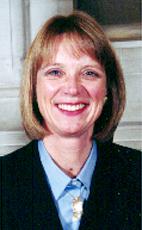Mr. Speaker, I would like to follow up on a question I asked the Minister of Justice on February 15. It regards the disturbing trend whereby defence lawyers subpoena private and confidential files and records from counsellors at sexual assault centres, from psychiatrists, doctors and other personal counsellors for use in the defence of their clients.
I thank the minister for his attention to this issue and for his informed response. However, I would like to share with the House the angst and concern that exists among constituents in my riding when they think of these personal documents being brought into the courtroom.
I like to share with the House some words from a constituent who wrote to me: "For many of us, the only safe place to talk about our injuries is in therapy. Therapy is a place where victims can learn to re-establish their own self-worth without being abused again. The counsellor offers the support that is desperately needed in order to learn how to set safe boundaries, learn about self-worth, the right to privacy, that it is okay to say no, it is okay to validate our own needs, it is okay to be angry and how to express that anger in a safe and constructive manner.
"In therapy, we learn that we are not powerless to our perpetrators and that it was not okay to be violated in the manner in which we were. We are given a place to safely express our emotions and validate our own feelings, even if we are the only ones that do. For many of us this is the only safe support that we have.
"This is a very sad day because now the defence lawyers want to take away what little privacy we as victims have and violate us all over again. My therapy is very personal to me. I can talk about my pain and my goals, my hopes and my fears. I pay good money for the right for that support to allow me to create my own boundaries. I urge you as a representative of my government to stop this injustice".
Those words are poignant and they are instructive. They tell us that victims of violence do not want these very private and therapeutic conversations to be part of the courtroom proceedings.
In 1992 the House passed very good legislation with the rape shield law. We know recently that in Nova Scotia the law was challenged and fortunately, the Minister of Justice intervened and the integrity of that law was maintained. With this right to subpoena we see a back door approach to get confidential information into the courtrooms where it should not be and where it creates difficulties for people like my constituent.
I know the minister is working very hard on this. I know he has intervened in the Supreme Court case that is reviewing the result of a B.C. appeal that would require strict controls over the use of this information in court. I thank the minister for that intervention. I hope the Supreme Court will judge in favour and allow the result of the appeal in the B.C. judgment to be available to all of us in Canada.
I ask the minister to continue his diligent review in this regard. I realize the issues are complex, but I ask him to find a balance between providing a fair trial for the accused and for the victim a right to privacy.

